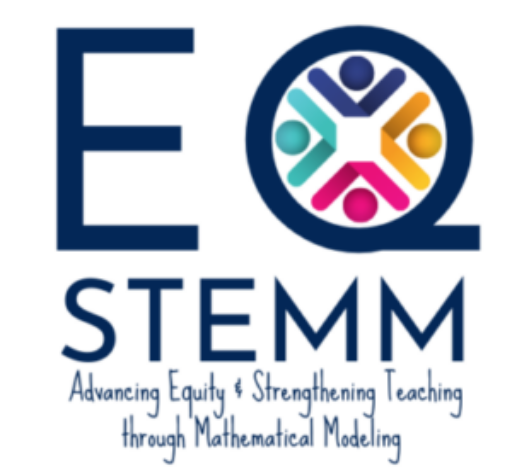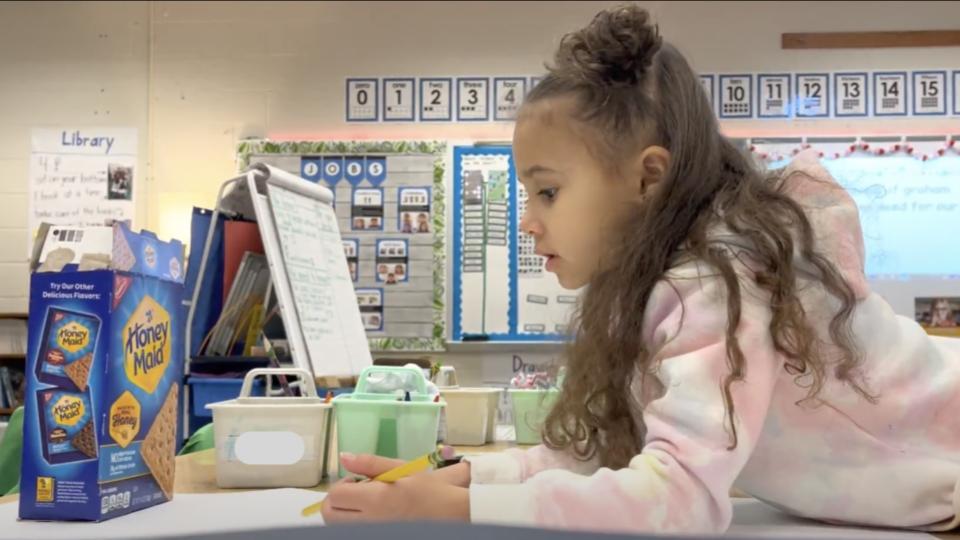What is Mathematical Modeling?
As stated in the Common Core Standards for Mathematical Modeling, “Real-world situations are not organized and labeled for analysis; formulating tractable models, representing such models, and analyzing them is appropriately a creative process [5] (p.60)” These real-world problems tend to be messy and require multiple math concepts, a creative approach to math, and involve a cyclical process of revising and analyzing the model. Mathematical modeling translates between the real world and mathematics in both directions, defining the real world as everything that has to do with nature, society, or culture, including everyday life, school, and university subjects, or scientific and scholarly disciplines different from mathematics.
Advancing Equity through Math Modeling
Mathematical modeling has the potential to “re-humanize” mathematics (Gutierrez, 2018) by providing students opportunities to make mathematical connections to themselves and the world around them. Mathematical Modeling promotes critical thinking and civic empathy as students work together to analyze and solve real world situations that are often complex and messy. Our project emphasizes a culturally responsive approach to math modeling instruction. By tapping into students’ funds of knowledge and diverse mathematical thinking; opening access to high cognitive demand activities with high supports; and promoting collaboration and collective action to solve problems, mathematical modeling provides an enriching space for students and their teachers to thrive.
Strengthening Teaching and Learning through Promoting Equitable Participation and Modeling Competencies
Students bring many mathematical assets to the classroom from their life experiences in their cultures and communities, particularly with respect to being able to model real-world situations in their everyday lives with mathematics. Many equity-related challenges in students’ communities can be understood through the use of mathematics and specifically the use of mathematical modeling (the analysis of complex real-world situations using mathematical resources and tools). Supporting teachers to make use of mathematical modeling in the elementary classroom to advance issues of equity will require targeted teacher professional development (PD).
- Bee Hotel-Lesson StoryMaking Bee Hotels Spring is here!!! Meet Ms. Whitney Corcoran who is an environmentalist and loves nature! Listen to Ms. Whitney Corcoran’s Lesson Story about […]
- March Madness Math ModelingWhether your favorite team is in the March Madness, this sporting event is full of mathematical modeling. As people excitedly fill in their game brackets, […]
- Mooncake Modeling for Lunar New YearMooncakes are a key part of the Lunar New Year as well as the Mid-Autumn Festival, which is celebrated on the 15th day of the […]
- Jump for Your HeartFebruary is America Heart Month- American Heart Month is celebrated in February to encourage healthy lifestyles to prevent heart disease. Heart-healthy habits are important for children […]
- Engaging in Math ModelingDecember 2023 Greetings to All Teachers of Mathematical Modeling, Hope you are gearing up for some family time with rest and relaxation during winter break! […]
About the EQSTEMM Project
Advancing Equity and Strengthening Teaching with Elementary Mathematical Modeling is a teacher PD project focused on strengthening K-5 teaching with mathematics modeling. Building on previous foundational work around mathematics modeling and equity, this project will bring together equity oriented teaching practices and mathematical modeling to design and research the impact of a blended PD program on teacher practice.
The project will include video-enhanced reflection and online mentoring in addition to face-to-face components of PD. Using the Culturally Responsive Math Teaching framework with elementary mathematics modeling , the project will explore the ways in which tools and structures that support practices aligned with pivotal spaces in mathematics modeling lessons can help teachers advance equitable participation and develop student competencies in mathematics modeling. The project will engage in cycles of design-based implementation research (DBIR) to study the relationships between features of the PD and changes in teacher practice, understandings, and dispositions.
The Discovery Research preK-12 program (DRK-12) seeks to significantly enhance the learning and teaching of science, technology, engineering and mathematics (STEM) by preK-12 students and teachers, through research and development of innovative resources, models and tools. Projects in the DRK-12 program build on fundamental research in STEM education and prior research and development efforts that provide theoretical and empirical justification for proposed projects.
Award Abstract # 2010269, NSF# 2008997, NSF# 2010202, NSF# 2010178
Collaborative Research: Advancing Equity and Strengthening Teaching with Elementary Mathematical Modeling

